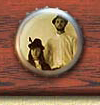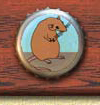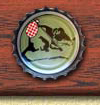German Beer Festivals
Whether it be Oktoberfest, Starkbierzeit, or raising the Maibaum, one can always find beer at the center of a German celebration.
The Beer behind the Mask
First published in WanderRat issue V2N2 (February 1995)

It has many names and is celebrated around the world...Mardi Gras, Fat Tuesday, Carnival, Shrove Tuesday, Lin-Crock Day, Nickanan Night and even Pancake Day to name a few. The giant party with so many names is a celebration the day before Lent begins. (Lent is a Catholic holiday of fasting about seven weeks before Easter.)
In Southern Germany, the revelry is known as Fasching or Fastnacht (fasting night) and is celebrated with plenty of enthusiasm. No holiday would be complete in Bavaria without beer, and the very name Fasching comes from Fasten-Schank (Fasten, meaning to fast, and Schank, meaning donation), because traditionally free beer was always served before the fasting began. The city of Munich even celebrates with a Schafflertanz (Cooper's dance). In 1635, after the Plague had struck the town 25 times in 250 years, the coopers, or barrel-makers, were the first to come out and inform the citizens with their song that it was once again safe outside of their homes. They wore costumes of green, white, yellow and red (which are still the Fasching colors today) and danced on beer barrels. As a remembrance, they now dance every seven years on Fasching Tuesday. The Müchener Glockenspiel (the city hall clock) still chimes the tune to which they dance.
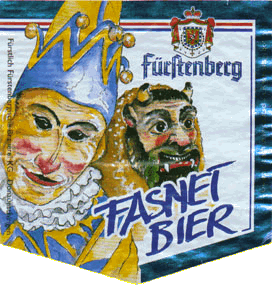 In the middle ages, Karneval (its name in Northern Germany) was a one day celebration with costumes and parades intending to drive out evil spirits (reflecting the heathen origin of the festival). Today the parties begin early in February. München is famous for its elite, glamorous balls where the costumes are elegant but small. Party-goers are known to wear little more than lingerie and to be a especially extroverted behind clown noses or discreet masks. Many cities and towns have their own holiday processions in which the participants, in makeshift floats, drive through the streets throwing candy and confetti at the bystanders, enjoying plenty of beer, and even handing out plastic cups of the amber elixir to the spectators.
In the middle ages, Karneval (its name in Northern Germany) was a one day celebration with costumes and parades intending to drive out evil spirits (reflecting the heathen origin of the festival). Today the parties begin early in February. München is famous for its elite, glamorous balls where the costumes are elegant but small. Party-goers are known to wear little more than lingerie and to be a especially extroverted behind clown noses or discreet masks. Many cities and towns have their own holiday processions in which the participants, in makeshift floats, drive through the streets throwing candy and confetti at the bystanders, enjoying plenty of beer, and even handing out plastic cups of the amber elixir to the spectators.
Warm Rio de Janeiro is famous for its scantily clad men and women parading through the streets for Carnival. In spite of the snow on the ground, Germany is scarcely different. Every year, for example, a parade is held in the chilly Donau (Danube) river. The spectators on the banks watch as the paraders in peculiar costumes swim by. Donaueschingen outside of Germany's Black Forest brews a special Fasnet (a dialect of Fastnacht) beer. The Vermin Brewing Research Team found this beer to be a little stronger, similar to Oktoberfest beer, and typical of the Marzen style. Perhaps it is a healthy dose of this festive beer that helps keep the celebrators warm.
And the Fountains flowed Beer
First published in WanderRat issue V2N4 (April 1995)

In front of the home of the Bayerische Brauerbund (Bavarian Brewers Union) stands a small fountain. Most of the year pedestrians and automobiles passing by don’t notice the inconspicuous little corner square. The iron fountain in the middle is decorated with stylized pictures of hops and barley and with the inscription “Hopfen und Malz, Gott erhalt’s!” (Hops and Malt, God save!) Once a year, however, this fountain doesn’t flow with water, but with beer!
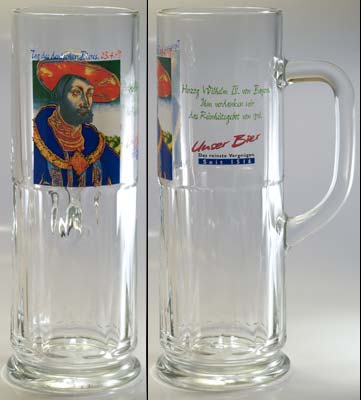 In celebration of the Bayerische Rheinheitsgebot (Bavarian beer purity law), the Bayerische Brauerbund transforms the plaza into a public party and everyone is invited. Vermin Brewing Researchers were there to participate. Limited edition glass mugs were available for DM 5 (US$3.70), and revelers could fill their new mugs at the fountain as often as they wished, as well as gather a wide variety of material from the information table.
In celebration of the Bayerische Rheinheitsgebot (Bavarian beer purity law), the Bayerische Brauerbund transforms the plaza into a public party and everyone is invited. Vermin Brewing Researchers were there to participate. Limited edition glass mugs were available for DM 5 (US$3.70), and revelers could fill their new mugs at the fountain as often as they wished, as well as gather a wide variety of material from the information table.
The party is meant to commemorate the birthday of the beer purity law which was ratified on 23 April, 1516. Along with free beer and special glasses there were fresh baked pretzels, speeches and plenty of interested press. Starting at 11:00 am, the beer flowed until the afternoon and anyone passing by was invited to wish happy birthday to beer. The information table distributed cards describing the entire beer making process as well as posters, buttons and postcards all for free. The high point of the noontime celebration, however, was the speech given by Dr. G. Schneider, president of the Bayerische Brauerbund. Dr. Schneider’s somber speech clearly moved the true Bavarians in the audience with praise for the oldest, still valid ordinance regarding ingredients in food. His comments that the Reinheitsgebot and beer are a cultural part of today’s Bavaria were probably the most effective: “Beer and Bavaria, ladies and gentleman, two things that simply belong together. Beer in Bavaria is a basic source of nutrition, a part of the culture, and as Freiherr von Kreittmayr once said — the fifth element of Bavaria.”
For the many reporters around the beer fountain, Bill and Kaye C. had a few words of wisdom.
Happy Birthday to you.
Happy Birthday to you.
Happy Birthday dear beer,
Happy Birthday to you.
